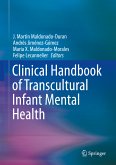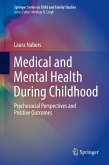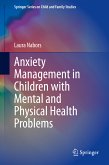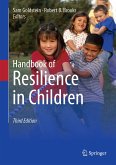Topics featured in this handbook include:
- The physiology and neuroscience of emotions.
- Perception and expression of emotional faces.
- Prosocial and moral emotions.
- The interplay of emotion and cognition.
- The effects of maltreatment on children's emotional development.
- Potential emotional problems that result from early deprivation.
The Handbook of Emotional Development is an essential resource for researchers, clinicians/professionals, and graduate students in child and school psychology, social work, public health, child and adolescent psychiatry, pediatrics, and related disciplines.
Dieser Download kann aus rechtlichen Gründen nur mit Rechnungsadresse in A, B, BG, CY, CZ, D, DK, EW, E, FIN, F, GR, HR, H, IRL, I, LT, L, LR, M, NL, PL, P, R, S, SLO, SK ausgeliefert werden.









